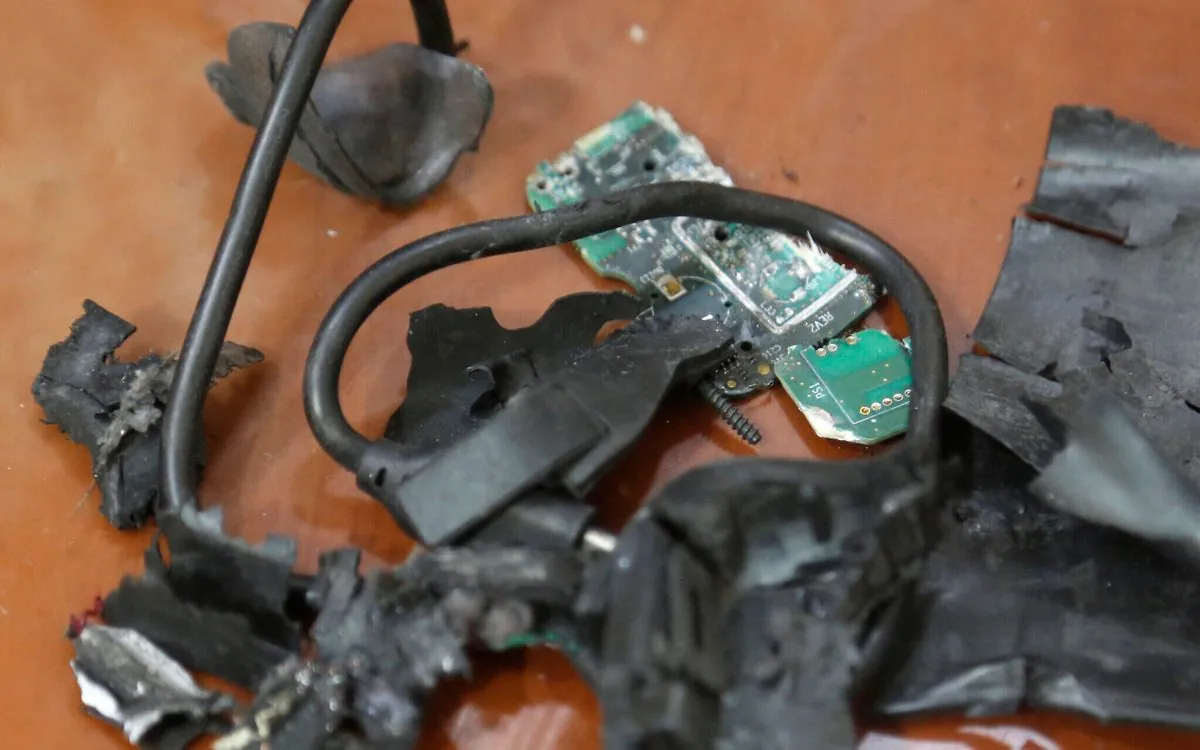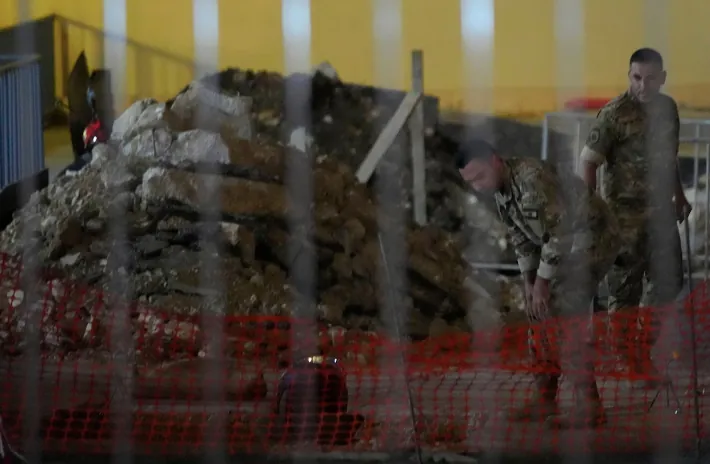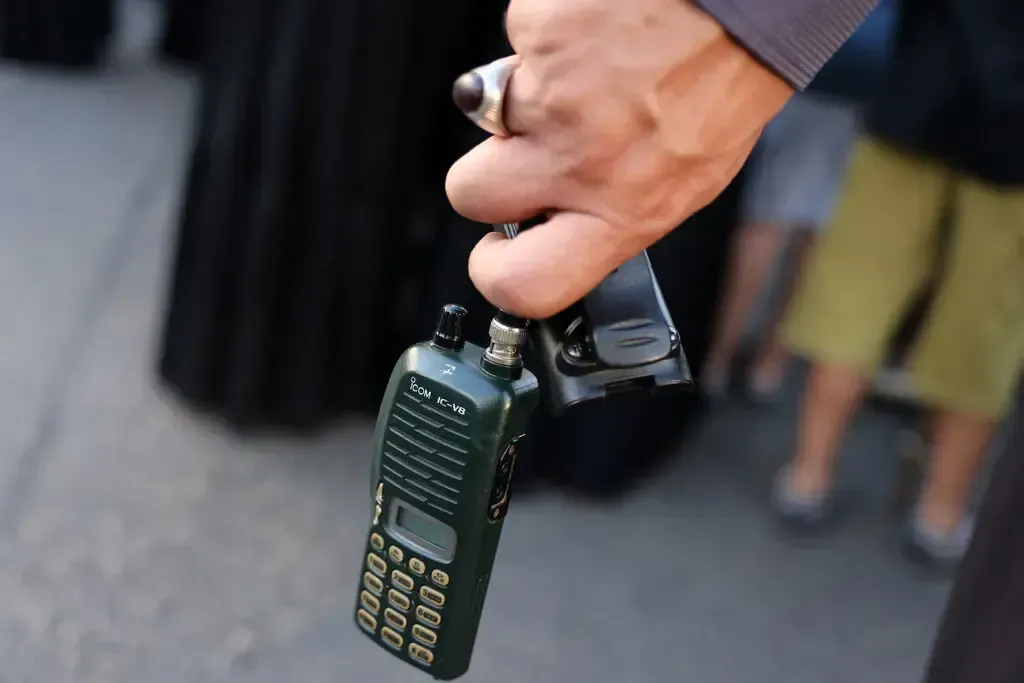Exploding pagers: how a modern Trojan horse is jeopardizing electronics supply chains around the world
Kyiv • UNN
The global market and dependence on technology from other countries has become a loophole for intelligence agencies.

As Hezbollah recovers from the deadly wave of pager and other technology explosions, the world has been confronted with an unpalatable truth: It is virtually impossible to protect the modern electronics supply chain from interference by enemy intelligence services.
The attack on Hezbollah was truly unprecedented in its scale and unique in terms of organization. Western experts doubt that anyone will be able to pull off anything similar in the near future. However, the Israeli attack exposed fears that have long existed, particularly in the U.S., before the fact that technology is becoming increasingly sophisticated and global supply chains increasingly convoluted.

Trojan Horse
In a series of pager explosions, and the next day and walkie-talkies in Lebanon killed at least 30 peopleand injured about three thousand more. Among the casualties are many members of Hizbullah - members of the group actively used pagers for communication. Officially, Israel did not take responsibility for the operation, but tacitly Israeli intelligence admits to being behind the attack. The New York Times, which spoke to 12 current and former Israeli Defense Ministry and intelligence officials, tellshow the operation was prepared. The newspaper's interlocutors describe it as “complex and lengthy,” while the publication itself calls the operation “a modern-day Trojan horse.
Pagers became the primary means of communication for Hizbullah members several years ago when the movement's leader, Hassan Nasrallah, declared that every cell phone was an agent. He ordered that details of plans should never be transmitted by phone. In early 2024, he stated that phones should be “buried” or “put away in an iron box.”
According to The New York Times, it was during the period when Hizbollah began to switch to pagers that Israeli intelligence decided to set up a company in Hungary called BAC Consulting, posing as a pager manufacturer, and two other front companies to cover its activities. BAC Consulting had ordinary customers for whom it manufactured ordinary pagers. But the one the company was really interested in was Hezbollah.”
According to three Israeli intelligence officials, the pagers for Hizbullah were manufactured separately and contained batteries containing PETN explosives. BAC Consulting began supplying these pagers to Lebanon in 2022 in 2022 in small quantities, but shipments increased after Nasrallah's statements about the dangers of cell phones.

On September 17 , at 3:30 p.m., pagers received messages. They were in Arabic and looked like they came from the top leadership of Hizbullah. Soon devices began exploding all over Lebanon. Among the dead and injured are not only members of the group. There are also children among the dead - the exact number of dead children is unknown - according to some reports there are two, according to others there are four.
The pagers were found to have been purchased from Gold Apollo, a Taiwanese company. The next day, the company issued a statement stating that the AR-924 pagers were manufactured by BAC Consulting, based in Budapest and licensed to manufacture the devices by Gold Apollo itself.
The Financial Times with citing the Hungarian register writesthat BAC Consulting was founded in May 2022 by Cristiana Rosaria Barsoni-Archidiacono. The journalists found her profile on LinkedIn. It states that she has a doctorate in particle physics. The School of Oriental and African Studies in London (SOAS) and London's School of Economics are listed as places of employment. To the NBC publication Barsoni-Archidiacono confirmedthat her company cooperates with Gold Apollo, but when asked about pagers, she replied that she is not involved in their production. “I'm just a middleman. I think you made a mistake,” the woman said.
According to Reuters the Israeli special forces had been planning the operation for more than a year. It is likely that Israel Defense Forces unit 8200 was involved in organizing and carrying out the operation. The media reports that employees of this unit were testing the possibility of introducing a stage with stuffing pagers with explosives into the production process.

A second wave of explosions took place in Lebanon on September 18. The explosions were no longer pagers, but rather radios of the IC-V82 model by Japanese electronics manufacturer Icom. The company promptly issued a statement, which says that radios of this model were discontinued back in 2014. Moreover, since 2020, the company warned that almost all IC-V82 radios available on the market are counterfeit.
Global vulnerability
Western analysts note that the situation with pagers and walkie-talkies in Lebanon demonstrated that the complexity of global technology supply chains makes them vulnerable to sabotage. The situation could cause disruptions to global trade not only in finished goods but also in their components.
Taiwanese pager company Apollo Gold, whose brand name was on the exploded pagers, says it did not manufacture the devices.
“We only grant permission to use the trademark and are not involved in the design and manufacture of this product,” the company stated, and then added: “The design and manufacture of the product is entirely handled by BAC,” a Hungarian firm headquartered in Budapest.
BAC Consulting CEO Cristiana Barsoni-Archidiacono confirmed that her company worked with Gold Apollo, but clarified that it did not manufacture the pagers, but was only an intermediary.
These statements, according to analysts, emphasize the lack of accountability in global supply chains and the need for tighter regulation of imports, which could slow trade.
“This incident illustrates how modern supply chains involving multiple intermediaries and manufacturers can be used for malicious purposes. The ability to sabotage goods, as was the case with the pagers, can lead to stricter import regulations, which in turn can slow down trade processes and supply chains. Critical sectors such as medical devices, infrastructure components or consumer electronics are not immune to such threats, posing serious global security challenges,” says Prof. Fahian Anisul Haq, Chair of Operations and Supply Chain Management at the University of Manchester, UK.
Global supply chains are very complex and sometimes intricate, involving not only manufacturers, but also a complex logistics network connecting manufacturer and consumer, including warehouses and transportation companies and networks around the world. Much of the world's electronics supply chain passes through Taiwan or other East Asian countries. But even the production of a single gadget can involve a dozen manufacturers from different countries and as many suppliers.
“When you have these global markets, sometimes it's really hard to understand exactly where something came from,” said Daniel Castro, vice president of the Information Technology and Innovation Foundation, a technology policy think tank that previously conducted IT security audits for U.S. federal agencies.

The attack on Hizbollah is also worrisome because it is not known at what stage of the supply chain the pagers were filled with explosives or switched to already filled ones - there are many possible points of exposure - production, testing, packaging, transportation, storage, and distribution. Especially since organizations like Hizbollah often deliberately complicate and lengthen the supply chain themselves in order to circumvent bans and various kinds of controls.
Although it is worth noting that something similar to the operation conducted by the Izralian intelligence services already took place in 2014. The case is described in documents leaked by Edward Snowden. The documents indicate that employees of the U.S. National Security Agency intercepted electronic devices sent by U.S. networking solutions provider Cisco Systems without the company's knowledge. The employees then carefully opened the boxes, implanted tracking devices in the products, and shipped them to unsuspecting overseas customers. Analysts admit that the Israelis could have used a similar approach and implanted explosives after the pagers went out of production. The disappearance of a Norwegian citizen - the owner of the company involved in the supply of pagers - is probably in favor of this version. However, it is also possible that the pagers were filled with explosives at the production stage, but such a scenario requires the participation of more people who would know what was going on. It would also require the likely cooperation of the manufacturer.
In addition, Israel has also used modern consumer devices in the past - in 1996, Yahya Ayyash, a Hamas bomb maker , was killed when he answered a call from a cell phone filled with explosives that were probably planted there by Israeli operatives through a relative of one of Ayyash's friends. In 2000, an activist of Fatah, a Palestinian political party, was killedwhen the cell phone he was using exploded.
Transparency and control
Experts note that only greater transparency in supply chains and strict control by the producers themselves can positively affect the situation.
According to The Washington Post, the incident could give impetus to policy efforts by the United States and other countries to localize more production of critical technologies domestically or with trusted allies.
After decades of globalization, officials in Washington have begun warning that reliance on foreign manufacturers of everything from batteries to truck cranes could entail security risks. Both former President Donald Trump and President Joe Biden have pushed to move more high-tech manufacturing to the United States, a rare moment of political agreement. The Biden administration has pushed for the world's largest chip maker, Taiwan's TSMC, to move some of its operations to the United States to ensure the safety of American customers. During the election campaign, Trump accused Taiwan of stealing the U.S. chip business.
Governments in Europe, China and other parts of the world have similarly launched campaigns to localize production and limit the consumption of some foreign technologies.
The lack of strict control by the customs authorities of some countries over the supply of electronic equipment also adds to concerns.
“When you depend on other countries for key resources or technology, you give them a backdoor into everything you do. It's a demonstration of what it looks like to turn that dependence into a weapon,"opined Melanie Hart, who until recently was a senior U.S. State Department security official and now works at the Atlantic Council.
Russia is also worried. Some analysts and bloggers there have already said that no one will be able to prevent their officials and other influential personalities from blowing up not only personal gadgets used by them, but also cars or yachts, with explosives planted in advance. All the more so because under sanctions, Russia often resorts to shady methods of importing technology and, like some terrorist groups, lengthens and complicates the supply chain itself.